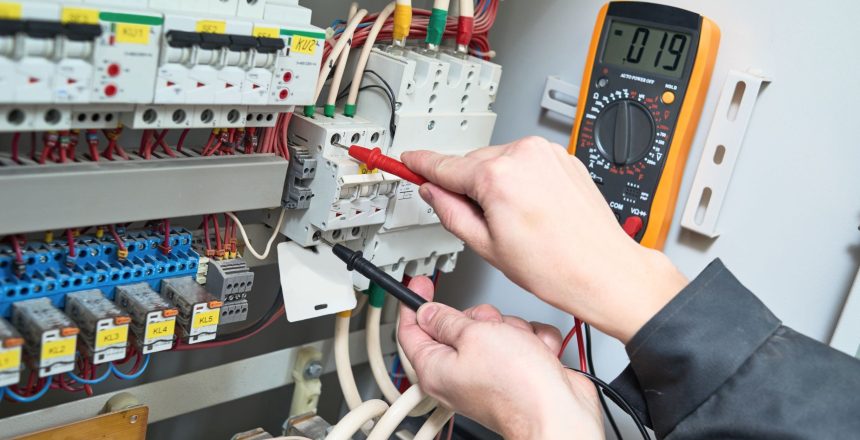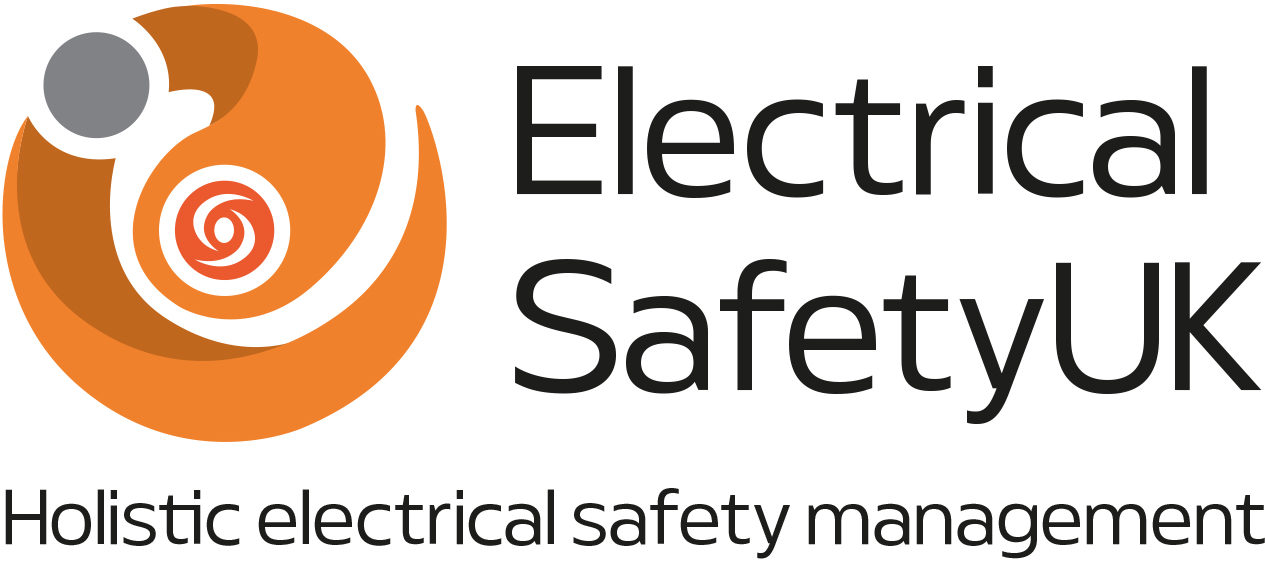Keep up to date with company and industry news.
Electrical Safety news

Lithium-Ion Batteries in Electric Vehicles: Managing Fire Risks and Ensuring Safety
Lithium-ion batteries (Li-ion) are revolutionising the automotive industry by powering electric vehicles (EVs), offering high energy density, lightweight design, and sustainable mobility solutions. However, alongside their benefits, understanding and mitigating the fire risks associated with these batteries is crucial for ensuring the safety of EVs and their passengers. These vehicles, under certain conditions, can pose fire risks due to a phenomenon known as thermal runaway.
Electrical Safety news


Battery Storage Systems: Powering the UK’s Renewable Future
The world is undergoing a significant shift towards renewable energy sources, and battery storage systems are playing a pivotal role in this transition. In the UK, these systems are crucial for achieving a cleaner and more sustainable energy future.
Electrical Safety news


Authorisation of Electrical Personnel
The purpose of an Authorisation of Electrical Personnel Procedure is to describe the general procedures and methods that should be adopted to ensure that all Electrical personnel who carry out work on Electrical Distribution Systems or equipment connected to them are, and continue to be, competent to carry out the duties of their role.
Electrical Safety news


Management of Ageing and Obsolete Electrical Equipment
The purpose of a Management of Ageing and Obsolete Electrical Equipment Procedure is to set out how the ageing and obsolescence of electrical equipment should be managed within your business or site. The procedure should provide a proactive system for managing specific ageing and obsolete electrical assets.
Electrical Safety news


Earthing Systems Design and Maintenance
Earthing is defined in BS 7671 as the connection of exposed conductive parts of an installation to the main earthing terminal of that installation. Whilst this may be a useful definition, it does not fully encompass the full meaning of earthing, bonding and automatic disconnection of supply.
Electrical Safety news


Electrical Safety in The Water Industries – Some Key Areas of Concern
Electrical Safety UK services to the water industry have included writing electrical safety rules and supporting procedures for household name companies and training 1000s of direct staff and contractors, including designing and delivering competence assessments.
Electrical Safety news


What Are Electrical Hazards?
Electricity is a hazard, as it is dangerous and may cause harm. If properly managed, the likelihood of electrical hazards is minimal, but the severity when things go wrong can be fatality or life-changing.
Electrical Safety news


Who Can Enter An Electrical Control Panel?
This is often a question we get asked, and in many cases, our reply is, ‘why do people need to go into an electrical control panel’? Demands on maintenance and service engineers often means that there is a lack of available competent persons who can react quickly when things stop working.
Electrical Safety news


Electrical Safety Management System – Electrical Safety Rules
We are often asked, what an ESMS should contain. This question has prompted me to write a series of articles looking at the different aspects of these vital documents. Here is the second article in that series.
Electrical Safety news


The Design Of Electrical Installations- Low Voltage (LV) BS 7671:2018+A2:2022
The answer is both yes and no. Regulation 4(1) of the Electricity at Work Regulations 1989 states, ‘all systems shall at all times be of such construction to prevent, so far as is reasonably practicable, danger’. In this instance, the term construction refers to an electrical system’s design, construction, and operation, including equipment that forms part of that system.
Electrical Safety news


Electrical Risk Increases
In the past nearly all large industrial sites would have at least one chartered or degree qualified electrical engineer on the staff.
Electrical Safety news


The Basics Of Electrical Control Panels
What is an electrical control panel? An electrical control panel is an enclosure, typically a metal box or plastic moulding which contains important electrical components that control and monitor a number of mechanical processes.
Electrical Safety news


Warm Weather Advice
As most of Britain enjoys an unseasonably warm summer, many of us are forced to suffer the torture of heat whilst at work.
Electrical Safety news


BS7671:2018 – The 18th Edition
How much change is there between the 17th Edition and the latest updates of BS 7671 to the 18th Edition? How much will it affect you and your business?
Electrical Safety news


Common Risk Factors When Working With Electricity
People often underestimate the risks that simple factors play in electrical safety, from missing bolts in panel doors, un-blanked openings, corroded enclosures and ingress of liquids or dust. We explore some of the most common hazards below:
Electrical Safety news


The 18th Edition…Time To Think About Training?
The 18th Edition has been with us now for 9 months and since January has been the defacto standard to which all electrical installation work should comply. For those who have remained abreast of amendments 1, 2 and 3 of the 17th Edition, the 18th Edition and its changes should pose little concern.
Electrical Safety news


Jim Phillips, PE, Founder Of Brainfiller.Com, Associate Director Of ESUK And Vice-Chair Of IEEE 1584 Discusses What’s Changed In The 2018 Edition Of IEEE 1584
The Greek Philosopher Heraclitus is credited with the phrase “The only thing that is constant is change.” That is certainly the case with the new 2018 Edition of IEEE 1584 ‘IEEE Guide for Performing Arc-Flash Hazard Calculations’. Almost everything has changed – except the title! The first edition of IEEE 1584 was published on September 23, 2002
Electrical Safety news


When Switching Off Is Not Enough
By Andy Linley, Compliance Director
This week I worked with a site engineer in isolating a supply to a section board. All went well with identifying the place of work and the point of isolation, along with obtaining permission to isolate.
Electrical Safety news


COVID-19 & Free Electrical Safety Desktop Audit
Globally, Coronavirus (COVID-19) is affecting the lives of many businesses and individuals. Employers are implementing policies and procedures never seen before to help ensure businesses survive. These are trying times, but the usual bulldog British spirit is already shining through.
Electrical Safety news


What Is An Electrical Duty Holder?
Coming into force on the 1st April 1990 Regulation 3 of the Electricity at Work Regulations 1989 introduced the term ‘Duty Holder’, or more specifically ‘persons on whom duties are imposed’. The introduction to HSE publication HSR 25: Electricity at Work Regulations 1989; Guidance on the Regulations clarifies in paragraph 5 that ‘[t]he guidance is primarily for duty holders (including those involved in the design, construction, operation or maintenance of electrical systems and equipment), engineers, technicians and their managers’.
Electrical Safety news


The Risks In Underestimating The Danger Electricity Poses In The Workplace
The statistics are out for period 2017-2018 relating to fatalities reported to the Health and Safety Executive. The good news is that only two fatalities occurred as a result of coming into contact with electrical energy, one was an employee and the other was self-employed. This represents 1.4% of the total reportable workplace fatalities.
Electrical Safety news


Why Is Electrical Safety Important?
You cannot smell, hear, or see electricity, so making sure you have the right systems in place to manage this hazardous energy is critical to the wellbeing of your employees and your Company.
Electrical Safety news


PAT Testing Frequency: How Often Should Electrical Equipment Be Tested In The Workplace?
A question that is often asked is how often should my electrical equipment be tested at work? Often referred to as PAT Testing (which in itself is incorrect as it becomes Portable Appliance Testing- Testing) the In-Service Inspection and Testing of Electrical Equipment is required by regulation 4(2) of the Electricity at Work Regulations 1989. The regulation requires equipment that may become dangerous if neglected to be maintained to prevent such danger from arising. HSR 25, Guidance on the Regulations identifies inspection and testing as being a means of verifying that maintenance is effective, but recognises that other methods of compliance do exist.
Electrical Safety news


What is DSEAR?
DSEAR stands for Dangerous Substances and Explosive Atmospheres Regulations. It is important to learn about DSEAR in the workplace to identify serious hazards and know how to assess the risk involved.
Electrical Safety news


Safe Isolation Procedure For Electrical Isolations
Switching off the supply of electricity to allow for safe working is legally mandated, with work on or near to live electrical systems permitted in exceptional circumstances only. Electrical isolation consists of two clear stages: switching off the supply and proving dead. It is important you follow a safe isolation procedure.
Electrical Safety news


Is BS 7671 Statutory?
BS 7671:2018+A1:2020 is a non-statutory document based on technical substance of European CENELEC agreements, and is published by the British Standards Institute under the joint direction of the Institution of Engineering and Technology (IET) and British Electrotechnical Committee (BEC).
Electrical Safety news



Understanding Electrical Inspection And Testing
Inspection and testing can refer to many different situations at all voltage levels. This blog focuses on electrical safety inspection and testing in relation to low voltage systems and includes requirements for electrical installations and also the in-service inspection and testing of electrical equipment.
Electrical Safety news


How To Put Out An Electrical Fire
The best way of dealing with an electrical fire, or more correctly a fire of electrical origin, is to prevent one from occurring in the first place. The cost of correct design, installation and maintenance is minimal when considering the cost of dealing with the aftermath of a fire:- loss of production, temporarily having to rehouse and the potential for loss of life.
Electrical Safety news


Earthing And Bonding 101
The term earthing and bonding for many people often causes confusion, and in some cases a lack of understanding can lead to a very unsafe condition arising. Except in a couple of specific situations where earthing is required for equipment to function correctly, earthing and bonding may seem like an unnecessary effort and expense: after all, equipment will still work without earthing or bonding being in place.
Electrical Safety news



What Happens To Electrical Safety Management Systems When Companies Are Taken Over Or Merge?
By Paul Hopton BEng CEng (Hons) MIET – Principal Electrical Consultant Director
Electrical Safety news



Electric Vehicles And Arc Flash
Test instruments and test leads are a temporary connection to electrical systems, often live at the time, for the purpose of making measurements to establish or confirm various parameters. Andrew Linley, Compliance Director at Electrical Safety UK Ltd looks at some of the standards that exist that we must comply with and that we should take into consideration whilst undertaking measurement tasks using test instruments.
Electrical Safety news


Arc Flash And Electrical Safety FAQ
By: Jim Phillips, P.E. Founder: Brainfiller.com and Associate Director: Electrical Safety UK, Ltd.
Electrical Safety news


Update To NFPA 70E 2021
ESUK Compliance Director, Andy Linley, reviews the changes to the NFPA 70E 2021 standard.
Electrical Safety news



What Is An Electrical Safety Management System?
Principal Consultant, Paul Hopton, answers below.
Electrical Safety news


What Are The Benefits Of Bespoke Training?
“Was this person competent to do that job?” This is the question that could be levelled at any Duty Holder if an electrical incident occurs. When stood in the dock of a courtroom is not the time to consider the meaning of this question.
Electrical Safety news


BS7671 Amendment 2 – What Do We Think Will Change?
Compliance Director, Andrew Linley, discusses the possible changes being released through Amendment 2 to BS 7671.
Electrical Safety news


SPA Core Construction
Many people work within the UK Construction Industry some at a technical level and others at a labourer level, with every person hour making a significant difference to the UK economy.
Electrical Safety news


Electrical Safety Management System – Electrical Safety Policy
One question we are often asked is, what should an ESMS contain? has prompted me to write a series of articles looking at the different aspects of this vital policy document ESMS. Here is the first article in that series
Electrical Safety news


BS 7671 2022 Updates – Changes To The Wiring Regulations
The second amendment to the 18th Edition IET Wiring Regulations are out, and all of the IET Guidance Notes have been updated accordingly. Electricians and engineers have had time to digest every minute detail and discuss the implications at length.
Electrical Safety news


Standards for Electrical Test Instruments and Test Leads
Test instruments and test leads are a temporary connection to electrical systems, often live at the time, for the purpose of making measurements.
